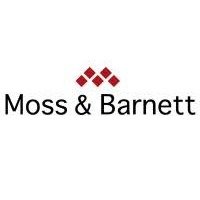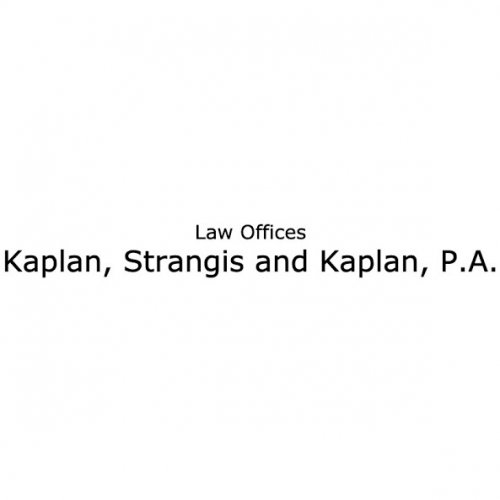Best International Trade Law Lawyers in Minnesota
Share your needs with us, get contacted by law firms.
Free. Takes 2 min.
Or refine your search by selecting a city:
List of the best lawyers in Minnesota, United States
About International Trade Law in Minnesota, United States
International Trade Law governs the rules, regulations, and agreements that facilitate commerce between countries. In Minnesota, as part of the United States, international trade law involves compliance with federal laws and international agreements that impact imports, exports, and cross-border business activities. Businesses and individuals engaged in global trade in Minnesota must navigate complex legal requirements encompassing tariffs, trade agreements, customs regulations, sanctions, and dispute resolution. Given Minnesota's robust agricultural, manufacturing, and technology sectors, understanding these laws is crucial for both exporters and importers to ensure legal compliance and business success.
Why You May Need a Lawyer
A lawyer specializing in international trade law can be invaluable in resolving a wide range of issues. Common situations where legal assistance may be necessary include:
- Navigating complex customs regulations when importing or exporting goods
- Resolving disputes over international contracts, deliveries, or payments
- Ensuring compliance with federal trade sanctions, embargoes, or export controls
- Addressing issues related to international intellectual property or licensing
- Understanding and applying tariff classification and valuation rules
- Mitigating risks and liabilities in cross-border business transactions
- Handling audits or investigations by customs authorities
- Securing or maintaining necessary permits, licenses, or certifications for international trade operations
- Assisting with business expansion to international markets
- Advising on local, state, federal, and international regulatory changes
Lawyers help protect your interests, avoid costly mistakes, and represent you in disputes, negotiations, or regulatory matters.
Local Laws Overview
International trade law in Minnesota operates within the framework set by federal statutes, regulations, and international agreements. However, there are important local considerations:
- Customs Compliance: Businesses importing through Minnesota's ports, airports, or border crossings must comply with U.S. Customs and Border Protection (CBP) regulations, including proper documentation, labeling, and declarations.
- State Trade Programs: The Minnesota Department of Employment and Economic Development (DEED) offers programs, grants, and guidance to businesses engaging in international trade.
- Taxation: Minnesota imposes certain taxes on international business, such as corporate franchise taxes and sales and use taxes, which may impact cross-border transactions.
- Export Control: The state works in conjunction with federal agencies to ensure exports comply with the Export Administration Regulations (EAR) and International Traffic in Arms Regulations (ITAR).
- Sector-Specific Rules: Minnesota businesses in agriculture, medical devices, technology, and education may face additional local compliance considerations when dealing with foreign buyers or partners.
It is important to note that most international trade regulations are federal, but local and state legal requirements can play a significant role depending on the business type and nature of the transaction.
Frequently Asked Questions
What is the first step for a Minnesota business wishing to export goods internationally?
The first step is to ensure your business is legally registered and in good standing. Next, determine if the products require an export license, research any trade restrictions, and verify the requirements of the destination country.
Which federal agencies regulate international trade in Minnesota?
The primary agencies are U.S. Customs and Border Protection (CBP), the U.S. Department of Commerce, the Bureau of Industry and Security (BIS), the United States Department of Agriculture (USDA), and the Office of Foreign Assets Control (OFAC), among others.
What are the common penalties for violating international trade regulations?
Penalties can include seizure of goods, hefty fines, denial of export privileges, and sometimes criminal charges, depending on the severity of the violation.
Do I need a license to import goods into Minnesota?
Although not all goods require a license, certain items such as firearms, plants, animals, and specific chemicals often do. It is crucial to check with federal authorities to determine licensing requirements before importing.
How are tariffs and duties determined on imported goods?
Tariffs and duties are determined by the classification and valuation of goods according to the U.S. Harmonized Tariff Schedule. A lawyer or customs broker can assist in proper classification to ensure accurate duty assessments.
Are there specific state taxes that apply to international trade transactions in Minnesota?
Minnesota may impose sales and use taxes, depending on the nature of the trade and the type of goods or services. Some international transactions may qualify for exemptions or special treatment.
How can I protect my business in cross-border contracts?
It is recommended to work with an attorney to draft contracts addressing applicable law, dispute resolution methods, payment terms, shipping responsibilities, and intellectual property protection.
What if my shipment is delayed or seized at the border?
You should promptly contact your customs broker or legal counsel. Delays or seizures can occur due to paperwork errors, regulatory violations, or random inspections. A lawyer can help communicate with authorities and resolve the issue.
Can Minnesota businesses trade with sanctioned countries?
Strict federal regulations prohibit or restrict trade with certain countries, individuals, or entities due to U.S. sanctions. Always consult legal counsel to ensure compliance before conducting business in or with restricted regions.
Where can I find help with international trade compliance and strategy in Minnesota?
Resources such as the Minnesota Trade Office, international trade lawyers, and specialized consultants can provide advice and support for businesses navigating international trade regulations.
Additional Resources
If you require further assistance, the following resources may be valuable:
- Minnesota Trade Office: Offers guidance, training, and resources for businesses engaging in international trade.
- U.S. Customs and Border Protection (CBP) - Area Port Office in Minnesota: Provides information about import and export procedures.
- Bureau of Industry and Security (BIS): Helps businesses understand export control requirements.
- U.S. Small Business Administration (Minnesota District Office): Offers support and resources for Minnesota businesses involved in international trade.
- Minnesota Department of Employment and Economic Development (DEED): Provides trade-related programs and services.
- Local chambers of commerce and industry associations: Often provide information sessions and networking opportunities for businesses in international markets.
- Legal aid clinics and pro bono organizations: May offer preliminary legal advice for small businesses and individuals.
Next Steps
If you believe you need legal assistance with an international trade issue in Minnesota, consider taking the following actions:
- Gather all relevant documents related to your trade issue, such as contracts, shipping records, correspondence, and invoices.
- Identify the specific problem or question you have regarding an import, export, or transaction.
- Contact a qualified international trade lawyer. Look for attorneys with experience in customs law, export controls, and international business practices.
- Consult with the Minnesota Trade Office or other relevant state agencies for initial guidance and referrals.
- Stay updated on local, state, and federal regulations that may impact your trade activities by subscribing to regulatory updates or news bulletins in the field.
Timely legal advice can help prevent costly errors, reduce legal risks, and support your business success in the global marketplace. If you are unsure where to start, contacting a local trade office or seeking a consultation with an international trade attorney are prudent first steps.
Lawzana helps you find the best lawyers and law firms in Minnesota through a curated and pre-screened list of qualified legal professionals. Our platform offers rankings and detailed profiles of attorneys and law firms, allowing you to compare based on practice areas, including International Trade Law, experience, and client feedback.
Each profile includes a description of the firm's areas of practice, client reviews, team members and partners, year of establishment, spoken languages, office locations, contact information, social media presence, and any published articles or resources. Most firms on our platform speak English and are experienced in both local and international legal matters.
Get a quote from top-rated law firms in Minnesota, United States — quickly, securely, and without unnecessary hassle.
Disclaimer:
The information provided on this page is for general informational purposes only and does not constitute legal advice. While we strive to ensure the accuracy and relevance of the content, legal information may change over time, and interpretations of the law can vary. You should always consult with a qualified legal professional for advice specific to your situation.
We disclaim all liability for actions taken or not taken based on the content of this page. If you believe any information is incorrect or outdated, please contact us, and we will review and update it where appropriate.
Browse international trade law law firms by city in Minnesota
Refine your search by selecting a city.












